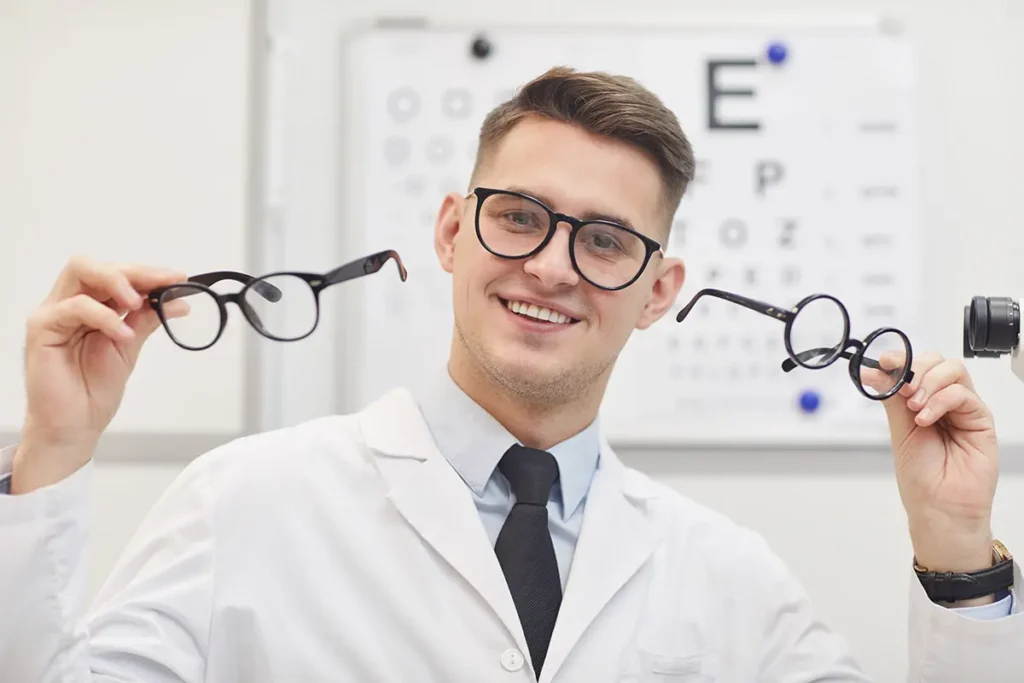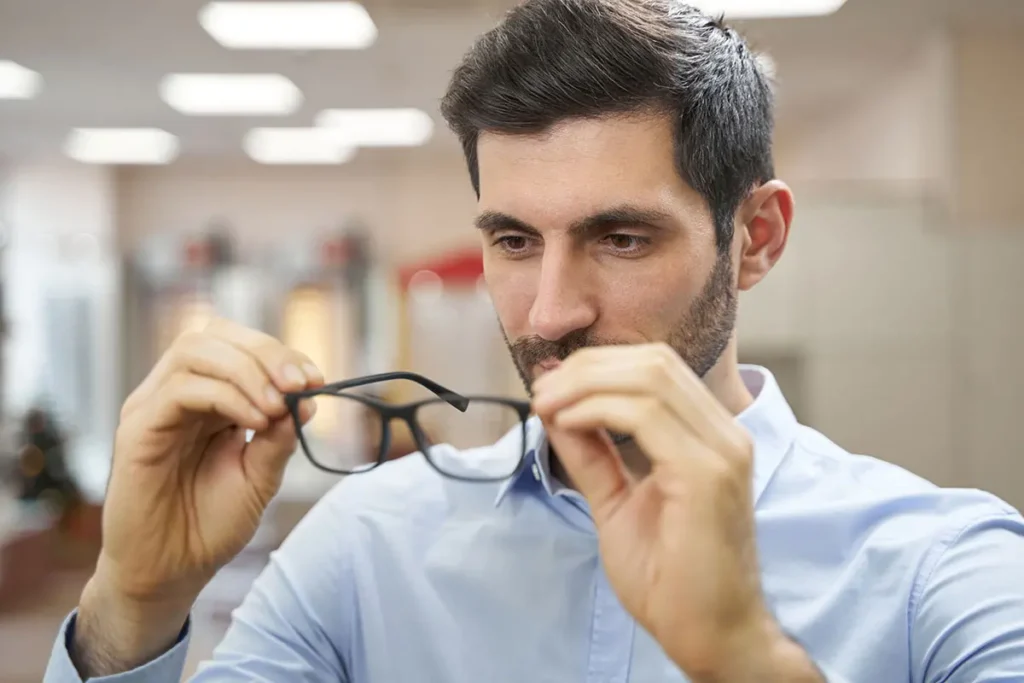Yes, broken glasses can often be repaired, depending on the nature and extent of the damage. Typically, most optical shops handle simple repairs such as tightening screws or replacing nose pads. However, for more serious issues like broken frames or lenses, professional repair might be necessary.
The lenses within the glasses can be interchanged. If your lenses are scratched, damaged, or if your prescription has changed, opticians can replace them with new lenses that fit your prescription and fit your existing frames.
Yes, old lenses can often be reused and fitted to another frame if they are in good condition and compatible in size and shape with the new frame. Opticians can make the necessary adjustments to ensure a secure fit and proper alignment. It is important to make sure the lenses fit your current prescription and pass a quality check before reuse. Professional help is recommended for this process to ensure the lenses are fitted safely and effectively.


Anti-reflective (AR) lenses, also known as anti-glare lenses, have a special coating that reduces reflections and glare from both the front and back surfaces of the lenses. This coating allows more light to pass through the lenses, which enhances clarity, reduces eye strain, and improves the appearance of the glasses by eliminating distracting reflections.
Photosolar lenses are eyeglass lenses that darken when exposed to ultraviolet light, and become transparent again when indoors or in low light. These lenses contain photochromic molecules that undergo a chemical reaction when exposed to ultraviolet radiation, causing them to darken. This darkening helps protect the eyes from bright sunlight and UV rays, much like sunglasses.
Progressive lenses, also called multifocal or varifocal lenses, provide seamless vision correction for distance, intermediate and near without visible lines between the different lens powers. They adapt to presbyopia by offering a smooth transition between these areas, allowing users to see clearly at all distances.
These glasses have temples that are attached directly to the prescription lenses using screws or pins. The temples are usually very thin and delicate, which emphasizes the discreet look of the glasses.
Accommodation is the ability of the eye to adjust its focus to see clearly at different distances. It is controlled by muscles that change the shape of the lens to properly refract light onto the retina. As we age, this ability decreases, leading to difficulty focusing on near objects, a condition known as presbyopia. Accommodations are essential for everyday tasks that require clear vision at different distances.
Presbyopia is best corrected with glasses or contact lenses designed for near vision. Options include reading glasses, bifocal or multifocal lenses, and contact lenses tailored to individual needs and preferences. Refractive surgery is also possible for some people.
064806306
0888357108
Pleven, Str. N. Rakitin 2
Monday - Friday 10:00 AM - 6:30 PM